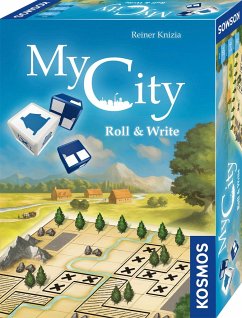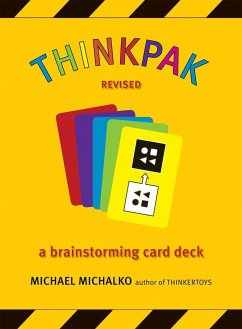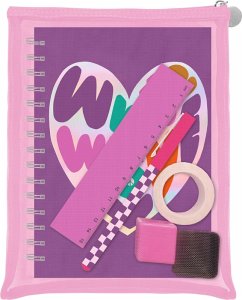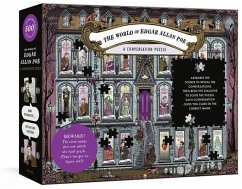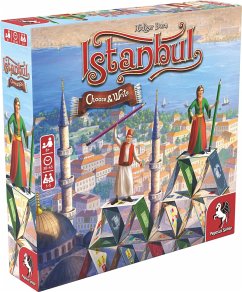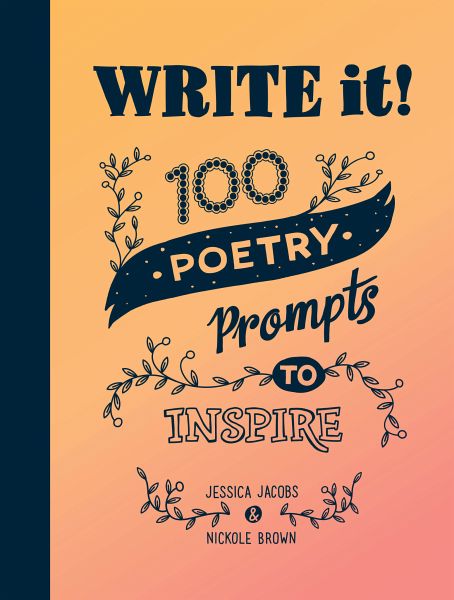
Write It!: 100 Poetry Prompts to Inspire
Versandkostenfrei!
Versandfertig in 2-4 Wochen
24,99 €
inkl. MwSt.

PAYBACK Punkte
12 °P sammeln!
Simply put, this book is designed to get you writing,to help you find your voice or, as the case may be,your many voices, so that the stories within youmight rise and make a chorus of your multitudes.The title of this book&mdash Write It!&mdash is from ElizabethBishop&rsquo s &ldquo One Art&rdquo &mdash a poem the poet famously sculptedthrough a series of obsessive revisions from a setof messy notes into a stunning villanelle. In it, shebegins with a list of the things she&rsquo s lost, startingsmall: keys, an hour here or there, her mother&rsquo swatch. But even when she allows herself to lis...
Simply put, this book is designed to get you writing,
to help you find your voice or, as the case may be,
your many voices, so that the stories within you
might rise and make a chorus of your multitudes.
The title of this book&mdash Write It!&mdash is from Elizabeth
Bishop&rsquo s &ldquo One Art&rdquo &mdash a poem the poet famously sculpted
through a series of obsessive revisions from a set
of messy notes into a stunning villanelle. In it, she
begins with a list of the things she&rsquo s lost, starting
small: keys, an hour here or there, her mother&rsquo s
watch. But even when she allows herself to list lost
items as big as a house, a river, or a continent, she
knows she still hasn&rsquo t acknowledged the true loss
that forced her to the page. No, it&rsquo s only in the
final line of the final stanza that the poet admits
she can tolerate the loss of all but her beloved and
urges herself to be honest, to be vulnerable, finally,
to &ldquo Write it!&rdquo , forcing herself to own the truth she
didn&rsquo t yet have the courage to say. To read Bishop&rsquo s
poem is to witness a person&rsquo s movement toward selfrevelation
through writing, and we hope these prompts
will engage you on a similar journey.
So, what do you need to get started? Well, only a
pen, really. Or maybe a pencil, if you&rsquo re the erasing
type. Oh, and it will help if you carve out a space
for yourself in terms of both time and place. Fifteen
minutes here, a half hour there&mdash whatever your life
allows&mdash along with a quiet little corner in which
to write.
to help you find your voice or, as the case may be,
your many voices, so that the stories within you
might rise and make a chorus of your multitudes.
The title of this book&mdash Write It!&mdash is from Elizabeth
Bishop&rsquo s &ldquo One Art&rdquo &mdash a poem the poet famously sculpted
through a series of obsessive revisions from a set
of messy notes into a stunning villanelle. In it, she
begins with a list of the things she&rsquo s lost, starting
small: keys, an hour here or there, her mother&rsquo s
watch. But even when she allows herself to list lost
items as big as a house, a river, or a continent, she
knows she still hasn&rsquo t acknowledged the true loss
that forced her to the page. No, it&rsquo s only in the
final line of the final stanza that the poet admits
she can tolerate the loss of all but her beloved and
urges herself to be honest, to be vulnerable, finally,
to &ldquo Write it!&rdquo , forcing herself to own the truth she
didn&rsquo t yet have the courage to say. To read Bishop&rsquo s
poem is to witness a person&rsquo s movement toward selfrevelation
through writing, and we hope these prompts
will engage you on a similar journey.
So, what do you need to get started? Well, only a
pen, really. Or maybe a pencil, if you&rsquo re the erasing
type. Oh, and it will help if you carve out a space
for yourself in terms of both time and place. Fifteen
minutes here, a half hour there&mdash whatever your life
allows&mdash along with a quiet little corner in which
to write.
Dieser Artikel kann nur an eine deutsche Lieferadresse ausgeliefert werden.






